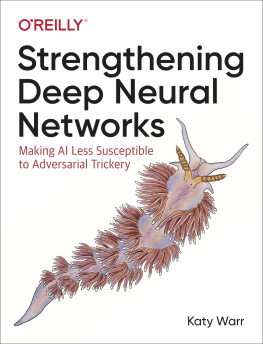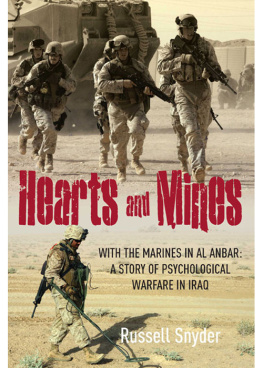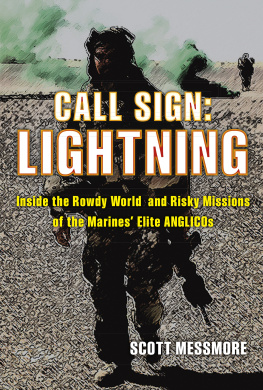PHASE LINE GREEN
This book has been brought to publication with the generous assistance of Marguerite and Gerry Lenfest.
Phase
Line
Green

The Battle for Hue, 1968
NICHOLAS WARR
NAVAL INSTITUTE PRESS
ANNAPOLIS, MARYLAND
This book has been brought to publication by the generous assistance of Marguerite and Gerry Lenfest.
First Naval Institute Press paperback edition published 2012.
ISBN 978-1-6125-1275-4
1997 by Nicholas Warr
All rights reserved. No part of this book may be reproduced without written permission from the publisher.
Library of Congress Cataloging-in-Publication Data Warr, Nicholas, 1945
Phase line green : the battle for Hue, 1968 / Nicholas Warr.
p. cm.
Includes index.
1. Hu (Vietnam), Battle of, 1968. 2. Tet Offensive, 1968. 3. Vietnamese Conflict, 19611975Personal narratives, American. 4. United States. Marine CorpsHistoryVietnamese Conflict, 19611975. I. Title.
DS557.8.H83W37 1997
959.704'34345dc21
96-47181
17 16 15 14 13 126 5 4 3 2 1
First printing
To the Marines of Charlie Company, First Battalion, Fifth Marine Regiment, in the Vietnam War era, and in the memory of my father, Joseph Packer Warr (19121981).
Dad, you were the only one who welcomed me home.
In my newly acquired guilt, I asked you to take the welcome home
banner down. Now that I understand, you are gone.
I hope you can read this from where you are.
Thank you.
No evil is greater than commands of the sovereign from the court....
He whose generals are able and not interfered with by the sovereign will be victorious....
There are occasions when the commands of the sovereign need not be obeyed....
If the situation is one of victory but the sovereign has issued orders not to engage, the general may decide to fight. If the situation is such that he cannot win, but the sovereign has issued orders to engage, he need not do so.
Sun Tzu, The Art of War
China, 500 B.C.
If them dumb mutherfuckin politician pukeheads would just let us alone and let us do our jobs, wed be outta here and back to the World in no time at all. Shit! No arty, no fixed wing, no direct support from those dumbshit, poor-ass tank crews; just our damned M-16s and grenades and they want us to root out a regiment of entrenched NVA in a day or two. Well, let them dumb asshole politicians come over here and follow me around for a minute or two, and see what kind of bullshit happens when dumbshit mutherfuckin politicians start calling the shots on the ground. Jesus H. Christ, why cant they stick to kissing asses and babies?
Obscene mumbling from pinned-down Marines
overheard amid street fighting, Hue, 1968
Contents
one
A Conversation with a Dead Dog
two
The Longest Night
three
Lang Co Village: In the Eye of the Storm
four
Phu Bai: Mess Hall Chow
five
Wading through Deep Shit
six
The Citadel
seven
Whiskey Boats on the Perfume River
eight
The Backdoor Approach
nine
Phase Line Green
ten
Coping with Disaster: A Dead Dog Day Afternoon
eleven
Life is Renewed in the City of Death
twelve
The Return of Heavy Firepower
thirteen
Snipers Lair
fourteen
The Night Movement
fifteen
Coke-Bottle Glasses
sixteen
Prisoner of War
seventeen
The Effectiveness of Chemical Warfare
eighteen
Aftermath, and a Dying Pig
A Ground Pounders Perspectives on Strategy, Vietnam War Style
I started writing this book in February 1983, almost exactly fifteen years to the day after this storys events actually occurred.
I must confess that I have an unfair advantage over most writers in that, despite the relatively long duration of this effort, the writing of this story has expended very little actual literary elbow grease. You see, I lived these events, and in some parts of my mind, I have been living them, every day of my life, since they took place.
To be sure, during the first ten or so of those fifteen years, I had absolutely no conscious realization that I was constantly reliving the days and weeks we spent in Hue during the Tet Offensive.
After having concluded my second consecutive, unsuccessful, five-year marriage, I sought counseling in an effort to understand just exactly why matrimony and I were seemingly incompatible. I spent the better part of six months visiting a very nice, competent psychiatrist twice a week, baring my soul to this capable and sympathetic individual, telling her the story of my life. That was in 1978. In 1983, after the unexpected death of my father and the resulting catharsis that I experienced, I reflected back on that counseling. In a flash I realized for the first time that my attentive and professional counselor, despite her having picked my brain for nearly fifty hours over that six-month period, had absolutely no clue that I was a Vietnam veteran. In 1983 I had to confront the fact that the events recorded in this book were having a devastating and negative effect on my life and on my interpersonal relationships with people, despite my having buried these memories so deeply that I no longer consciously remembered them.
Having been profoundly shocked by the revelation that my wartime experiences were haunting me without my conscious knowledge, I made the very difficult decision to try to consciously remember what had happened and to write it all down as a form of therapy.
Of course, fifteen years is a long time, and certain parts of the memories had eroded. But I quickly found out that my memories of the story were there in vivid and graphic detail, although some dates and names were dim and vague. So I decided to do some basic research.
Through correspondence with several sources of research materials, I began to accumulate a significant stack of documents, including maps of Vietnam, the Command Chronology of the First Battalion, Fifth Marine Regiment, during the period of 129 February 1968, and a copy of the Combat After-action Report on Operation Hue, which I assume was written by 1/5s battalion commander after the battle was over. My readings of these documents were very disturbing, because there were serious discrepancies between my memories and these documents.
Once I started this project, it took on a life of its own. I became almost obsessed with finding anything and everything written about the Vietnam War, especially anything having to do with the Tet Offensive of 1968.1 found that much of what was written was very sketchy, and that the limited information available followed the line established by the official records.
Lets get to the bottom line.
The battle for the Citadel of Hue, during the Tet Offensive of 1968, is universally considered by writers and historians as the most hard-fought and bloody battle of that long and bloodthirsty war. I do not dispute that. I saw it and lived it, up close and personal. It was a devastating confrontation between a large, determined force of North Vietnamese Army regulars and an equally determined force of U.S. Marines. Even given the best of all possible scenarios, under these circumstances, much blood would be lost.
Neither do I dispute the outcome. Although it took nearly a month of hard fighting and personal sacrifice, the Marines achieved a decisive victory, ultimately crushing a numerically superior enemy.









